
Here is a sobering fact: Homo sapiens (modernday human beings) appeared on Earth around 130,000 years ago, whereas our planet is around 4.5 billion years old. This means we've been here for about 0.000028% of the Earth's existence.
Yet, in this remarkably short period, we've contributed to global warming that has heated the oceans by the equivalent of dropping one atomic bomb into the ocean every second for the past 150 years¹. Each second, one Hiroshima bomb dropped in the oceans.
How long will nature tolerate our transgressions?
Cataclysms like tsunamis, wildfires, and hurricanes, don't judge individuals and selectively punish. They are blunt and brutal. Reversing climate change is not an act of altruism towards the planet. It's our only option for survival.
You may have heard of the example of a frog in a bowl of heating water. The frog enjoys the warmth but doesn't realize the water is getting warmer. Eventually, the water gets hot enough to kill the frog.
But it's not entirely true. In real life, when the water becomes too hot, the frog realizes the danger and jumps out of the bowl. The frog is wise enough and knows when to jump. We may not have the time to jump, and we have nowhere to jump.
The story of Easter Island, famous for its monolithic stone sculptures, is a cautionary tale. Most ethnologists believe that Easter Island was once rich in vegetation and resources, but the tribes on the island plundered them. They cut down all the trees and fought over resources. The soil eroded into the seas, the birds left the island, and the fish moved to new waters. People kept fighting and most of them died of starvation. Easter Island is still there, but the human societies disappeared.
If my tone sounds alarmist, it is an alarming time.
This story is from the {{IssueName}} edition of {{MagazineName}}.
Start your 7-day Magzter GOLD free trial to access thousands of curated premium stories, and 9,000+ magazines and newspapers.
Already a subscriber ? Sign In
This story is from the {{IssueName}} edition of {{MagazineName}}.
Start your 7-day Magzter GOLD free trial to access thousands of curated premium stories, and 9,000+ magazines and newspapers.
Already a subscriber? Sign In
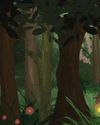
A Flower from THE HEAVENS
November 14 is Children's Day. This year, SARA BUBBER brings to you a world of forests, magical flowers, festivals, and some animals you may have never seen.

Meeting Phenomenal Women
The author, CHITRA BANERJEE DIVAKARUNI, is interviewed here by TARA KHANDELWAL and MICHELLE D'COSTA about her books on mythology, like The Palace of Illusions, which is a retelling of the Mahabharata from Draupadi's point of view, and The Forest of Enchantments, which is a retelling of the Ramayana, from the eyes of Sita. And there's The Last Queen, which is about Rani Jindan's life.
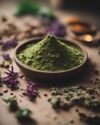
HERBAL TOOTH POWDERS: Rediscovering Ayurveda's Natural Secrets
SRAVAN BANDA presents a natural herbal tooth powder, offering a holistic approach to oral hygiene, harnessing the power of medicinal herbs.

The Dance of Light and Shadow Lessons from the Dolomites
ALAIN DESVIGNE explores the Dolomites, listed as a UNESCO World Heritage Site in 2009.
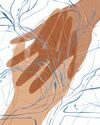
FINDING OUR WAY
A Polynesian Explorer's Journey of Discovery
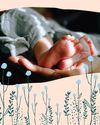
The First Imprint: Understanding PTSD
CHRISTIANNA DEICHMANN is the Director of Education at the Association for Pre and Perinatal Psychology and Health (APPPAH), where she educates both professionals and parents on fostering the most nurturing environments for welcoming new life into the world.

The Tipping Point
In this final conversation of the series, J. FREDERICK ARMENT continues to talk with CHRISTINE JONES about promoting peace in the world.
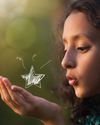
UNLOCK YOUR POTENTIAL
Take The Brighter Minds Path To Cognitive Development

The Intrinsic Goodness of the Heart
DAAJI shares some thoughts on heartfelt acceptance and all it has to offer. He says, \"It is the heart's intrinsic goodness that allows us to accept everything as part of us.
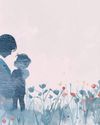
How Does Fear Affect Our Roles as Mothers? - Neelam Shivhare explores some of the great ancient texts of India on motherhood, compares the behavior of Kaikayi and Yashoda
Neelam Shivhare explores some of the great ancient texts of India on motherhood, compares the behavior of Kaikayi and Yashoda, and realizes the importance of removing fear from our hearts in order to nurture our children.For young women like myself, who are future mothers, I trust we are on the path of becoming selfaware and brutally honest with ourselves. We are creative beings, never forgetting the gifts with which we have been bestowed— the love and tenderness, natural instincts, and intuition to feel the right path. It all lies in the mysterious meanderings of the heart. Are we really listening to our hearts, or confusing the bombarding information on social media with reality?